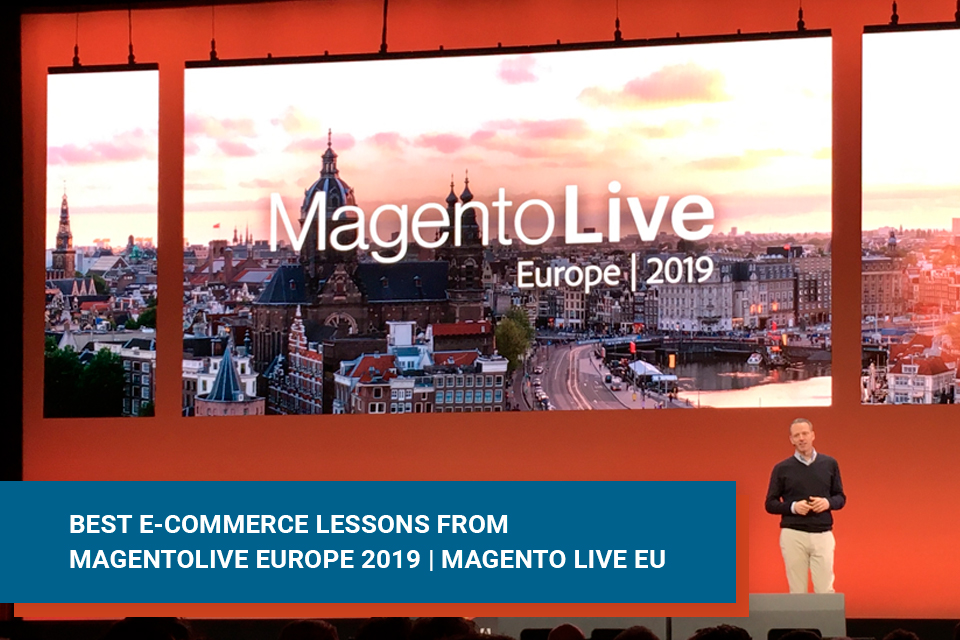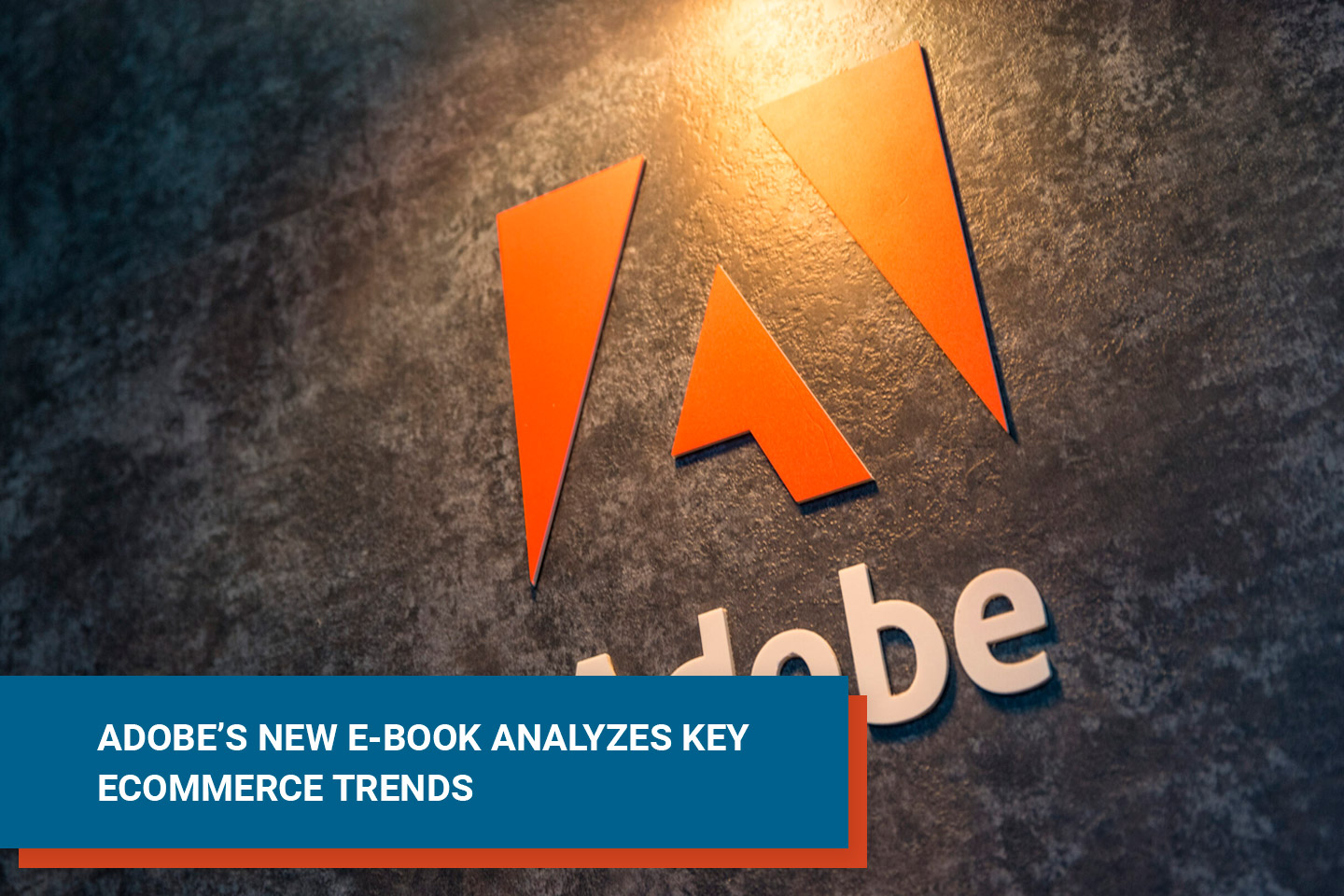The Future of Magento Commerce Revealed at Adobe Summit 2020
 Igor Krasnykh
·
5 minute read
Igor Krasnykh
·
5 minute read

Every year Adobe, the company behind well-known software Photoshop, hosts a summit geared toward digital innovators. The Adobe Summit hosts 20,000 design and business professionals from around the globe. This year’s Adobe Summit was scheduled to be especially meaningful for eCommerce professionals. As a strategic move in 2018, Adobe purchased the Magento commerce platform. For nearly a decade prior, eCommerce company Magento had hosted its own event. This annual, global conference — deemed Magento Imagine — gathered thousands of professionals to explore the latest in electronic commerce, the world over. To cement the acquisition in 2020, Adobe planned to incorporate the 10th anniversary Magento Imagine event into this year’s Adobe Summit. However, with the threat of COVID-19 growing, Adobe made the difficult decision to cancel Adobe Summit 2020 and in tandem Magento Imagine 2020. The tech giant wasted no time in demonstrating the exact principles that were to be the foundation for this year’s conference. As a digital trendsetter, Adobe delivered a successful model for how digital conferences can unfold in the post-pandemic world. They successfully transformed the five-day Las Vegas convention into a full-fledged digital experience. Upon registering for free, digital guests were allowed full access to keynotes and breakout sessions at no additional cost. This year’s topics (or “Innovation Tracks”) included:
- CommerceContent;
- Data and Analytics;
- Advertising;
- B2B Commerce;
- Journey Management.
“Digital commerce is becoming the only way that business is done for thousands of companies around the world,” Jason Woosley said during the Magento commerce keynote. Woosley serves as the vice president of commerce product and platform at Adobe. He noted that the current health crisis has created a demand for flexible, scalable eCommerce solutions that offer a fast time to market. Through the digital convention, Adobe revealed the latest innovations to emerge within its Commerce Cloud, as well as what to expect through the rest of the year. While it is not yet known how COVID-19 will impact the eCommerce industry long-term, more brands are expected to prepare for future economic threats. Woosley said Adobe hopes to help by providing market-leading solutions that personalize journeys and make every moment shoppable. Here’s what we learned.
Magento commerce is zeroing in on Progressive Web Apps

During the keynote, Woosley went into great detail about how Magento commerce is transforming mobile with Progressive Web Applications, or PWAs. PWAs look and function like smartphone applications, however they are accessed through a mobile browser. This eliminates the need to download a separate mobile application while still providing benefits like a sleek look and fast load times. PWAs also offer benefits for developers because they do not require a separate design for iOS, Android and multiple web browsers. Woosley said businesses that have embraced PWA technology are seeing conversion rates improve by 50% and higher. For that reason, Magento commerce is “doubling down in 2020” to help merchants unlock the power of PWAs. Some of the most recent customer launches with the Magento PWA Studio include Selco Builders Warehouse, ModLi, Wyze and Xercise4Less.
Adobe Stock integration is now available within Magento commerce

Adobe’s suite of digital editing and design products have a reputation for offering compatibility and complimenting each other. For example, audio files from Adobe Audition (audio editing software) integrate seamlessly into Premiere Pro (video editing software). Woosley said one of Adobe’s goals for Magento commerce is intelligent integration with other Adobe Experience Cloud products (which include the marketing, advertising and analytics clouds). The company recently integrated Adobe Stock into the Magento commerce media gallery so that imagery can be incorporated within the Magento admin panel. The change allows merchants to discover, preview, license and integrate stock assets without jumping between tools and manually uploading images.
Expanded B2B capabilities are on the way

Woosley said that with a focus on business agility, the company made its first substantial investment in B2B-specific capabilities in its previous version (V2.2) of Magento commerce. By doing so, he said the platform became the first to natively support B2B and B2C business models.
“We’re now actively developing the next wave of important B2B-specific features based directly on feedback from our B2B merchants,” Woosley said.
Key Magento commerce B2B focus areas include:
- More sophisticated purchasing workflows;
- An enhanced process for purchasing catalogs within the B2B framework;
- Feedback based usability enhancements for improved merchant experience;
- B2B-specific reference themes with all the PWA components;
- Buyer workflows for quote and order approvals in the front-end.
Device-based mobile payments are now fully integrated

Eighteen months ago, Adobe was working on a mobile optimization initiative to identify and validate ways to improve mobile conversion rates. In October, Magento Live Europe offered a sneak peek into the Adobe labs, where Payment Request APIs (or device-based payments) were being tested. Device-based payments allow secure access to payment information stored on a shopper’s mobile device. By utilizing this technology, users can skip the checkout process altogether, even if they have never visited the online store before. This eliminates purchasing friction while enhancing the shopper experience. After over a year in development, these innovations are fully integrated into the newest update of the Magento commerce platform. Fortunately, Adobe merchants have already observed conversion rate increases by 20% since the adoption of device-based payments.
Product recommendations powered by Adobe Sensei are coming soon

Accessibility to Artificial Intelligence (AI) is a budding but mysterious concept in the business community. Naturally, Adobe is among the modern tech companies in the race to build out a mass market, intuitive solution that offers an invaluable competitive advantage. Their proprietary AI engine is called Adobe Sensei, and it is primarily used for designing experiences and predictive modeling, among other things.
In January, Adobe kicked off the early access program for select merchants to test a new facet of this technology. Through this new capability, users can leverage the machine learning and artificial intelligence insights of Sensei to create unique and relevant product recommendations for shoppers on Magento commerce sites.
Woosley said that the product recommendations extension will be available to all merchants in the Magento Marketplace in coming weeks. With it, merchants can control how and where on the site recommendations are shown to customers and choose between the following types:
- Most popular;
- Customers who viewed this also viewed that;
- Customers who bought this also bought that.
According to Jennifer Small, Adobe Senior Solutions Consultant, the new “recommended for you” algorithm is guided by real-time customer shopping metrics. Browsing and purchasing information and shows customers products compatible with their likelihood to convert.
“This is just the beginning of how we’re bringing new and improved business user function directly to the Magento user interface,” Small said in a presentation.
In a separate Adobe Summit 2020 virtual session, Senior Product Manager Misha Kotov shared data that shows how powerful product recommendations can be:
- Netflix: 75% of all watched content is recommended;
- Amazon: 35% of revenue driven by recommendations;
- Lotte Mart: 40% increased sales of stale inventory products;
- Knomo London: 60% increase in customer conversions.
Put Magento commerce to work for your business
The launch of Adobe’s Commerce Cloud was based on the sturdy foundation of the Magento commerce platform. That being said, the enhancements presented at this year’s summit — progressive web applications, Adobe Stock integration, expanded B2B capabilities, device-based payments, and AI-powered product recommendations — only enhance the extraordinary suite of capabilities available with Magento commerce. Furthermore, it pairs nicely with Adobe’s Analytics Cloud, Marketing Cloud and Advertising Cloud.
Magento provides an unparalleled toolbox of resources for eCommerce users. Unfortunately, many business owners miss out because these high-tech solutions seem out of reach. If there is a singular takeaway from this year’s conference, it’s that the future is now.
Do you want to learn more about how Magento can help you grow your eCommerce business in 2020 and beyond? If you’re curious about the potential of Magento and your business, schedule time on our calendar for a complimentary, risk-free conversation with one of our Magento commerce experts.



